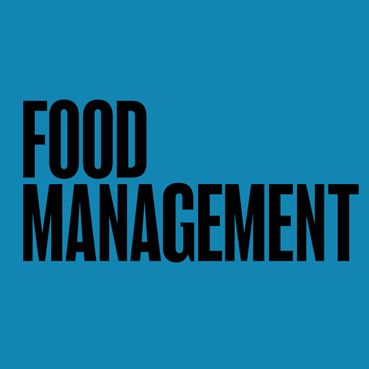The Keys to Executive Leadership
October 1, 2006
FM Staff
Deb Fratrik"You have to engage the whole organization to find solutions." |
John McDonough"Nothing breaks the morale of an organization faster than someone who is just sliding by." |
Gary McCullough"Leadership is the ability to influence others. Nothing more, nothing less." |
What personal leadership characteristics have successful foodservice executives found most important in their own careers and in managing companies they work for?
That question was explored at the HFM National Conference by an executive panel that included Gary McCullough, president of Ross Products division, Abbott Healthcare; John McDonough president, ITW Food Equipment Group, the holding company for Hobart Corp.; and Deb Fratrik, Chief Operating Officer of BD’s Mongolian Grill,a fast-growing chain in the Midwest. Here are some of their observations:
On the essence of personal leadership
“The essence of leadership is the ability to influence others. Nothing more, nothing less. If you think of it this way, everyone has the ability to lead.”
�— Gary McCullough
“Leadership is driven by much more than by title. Everyone knows who the informal leaders are in an organization they are the people who can get something done for you.”
— Deb Fratrik
“There is a big difference between demanding respect and authority and commanding respect or authority. Leadership is the ability to move people in a given direction, and there are many folks who do that exceptionally well without having the formal authority to do so. It is an unconscious thing: people decide this is someone with integrity, this is someone I am willing to follow.”
— John McDonough
On Managing Change
"I have spent my career in situations that, while not crises, were situations in which change was necessary. In that environment. I like to personalize things, spending time with groups of people, talking about where we've been, where we want to go, to make sure they understand things as I see them.
"Sometimes decisions are made, that, without explanation, do not seem rational. I try to make decisions seem more rational by personalizing them. I will take any question that is asked of me and answer it honestly, although there are some questions you have to answer by saying, 'I don't know,' or 'I am a corporate officer and can not answer that.'"
Gary McCullough
On Managing Staff
"I think it is important to talk to employees at every level in an organization. I will walk into the back of a restaurant and find the dishwasher. He or she is responsible for a critical function in our business—making sure the dishes are clean and sanitized for every guest who visits us. A good dishwasher is very hard to replace.
"I make an effort to know every single person's name at every place in our organization, and if I can't, I use a cheat sheet. This keeps people engaged and wanting to work for you. I never leave a location without walking through and thanking them for working hard."
Deb Fratrik
On Solving Problems
"When a program hasn't hit the mark, I put together a cross-functional task force to find out why. It will include a marketing person, an operator, a server, a bartender. They're told to get the necessary feedback, to find out how to make it work better next time. You have to engage the whole organization in finding a solution."
Deb Fratrik
On Dealing with Authority
"There is a big difference between respect in the sense of deferring to one in authority, and the respect that someone in authority has gained from you personally.
"There are many people whom you respect because of their title or authority or position in life, but whom you personally do not care for. You may work for someone who is good or not so good but has the title, and you must be responsive to them if you choose to stay in your environment. That is much different from having so much personal respect for an individual that you would follow him or her off a cliff."
John McDonough
"I draw a line when the issue is integrity. If a manager asks you to do something that is questionable—I can not go further in that organization. But something that has worked well for me, if I have a boss and we are just not communicating or working together well, is to sit down and say: 'This is not motivating me. This is what I need from you to accomplish more in this organization, to achieve great things.' It has worked for me nine times out of ten."
Deb Fratrik
On Management Mistakes
"It is a mistake to try to please everyone. As a manager your job is not to make everyone happy, but to make fair decisions that will get the job done well."
Deb Fratrik
"When you come into an organization, there is a tendency, if you don't have the best person in a certain role, to delay making a change. You want to give the person a chance, to give them a break.
"Looking back, not moving fast enough was my biggest mistake. I now try to make evaluations and to move quickly. You typically only have a small window. If you do it too soon, say within 60-90 days, you probably don't know enough to do it well; but if you wait longer than six months, you have waited too long. So there is a sweet spot, and you have to go in looking to hit it."
Gary McCullough
"Nothing breaks the morale in an organization faster than someone who is just sliding by and surviving. If you know it, everyone else knows it too.And nothing challenges the team's view of you as a manager as much as your unwillingness to act on a situation like that."
John McDonough
About the Author
You May Also Like






